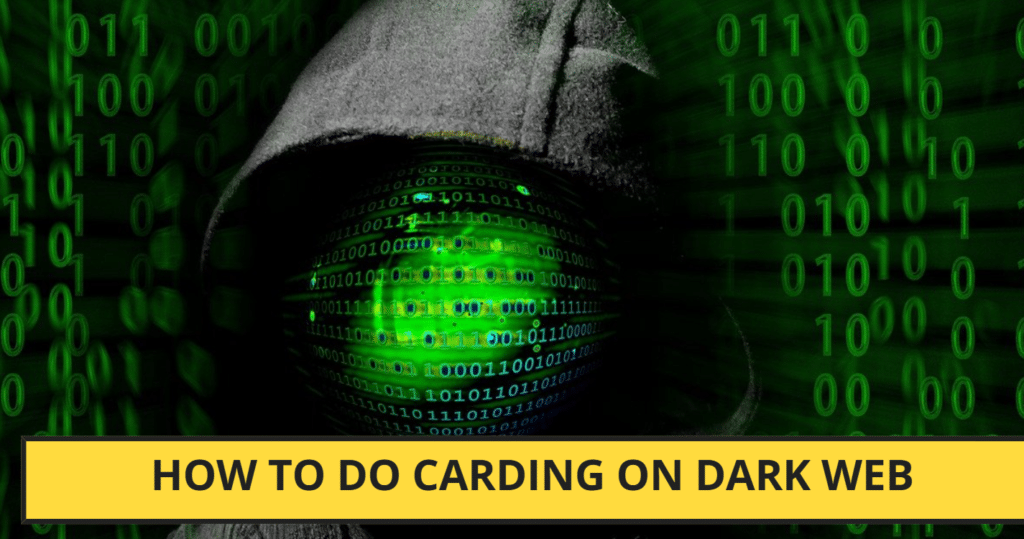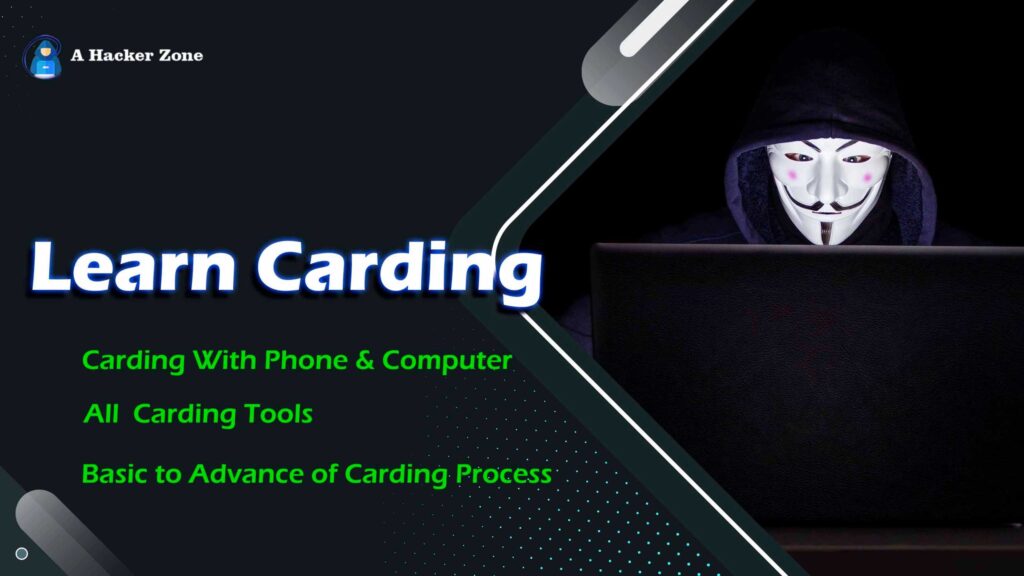How to do carding on Dark web
How to do carding on Dark web: Carding on the dark web has become a popular topic among those looking to engage in illegal activities. However, it is crucial to approach such subjects with caution, as engaging in carding is illegal and can lead to severe consequences, including criminal charges. In this guide, we will explain what carding is, the process involved, and the risks that come with it. Additionally, we’ll share some helpful tips on how to protect yourself from falling victim to such scams.
What is Carding?
Carding refers to the fraudulent use of stolen credit or debit card information to make unauthorized purchases. Cybercriminals typically obtain card details through hacking, phishing, or by purchasing them on the dark web. Carding is often used for money laundering or to purchase goods that are then resold for a profit.
The Dark Web and Carding
The dark web is a hidden part of the internet where illegal activities such as drug trafficking, hacking services, and carding take place. It’s not indexed by traditional search engines, and access requires specific software, such as Tor, to maintain anonymity.
Carders (those who commit carding fraud) typically use the dark web to buy and sell stolen card details, as it offers a certain level of anonymity. The dark web is a marketplace for cybercriminals, and many forums offer carding services, tutorials, and stolen data for sale.
How Carding Works on the Dark Web
- Getting Access to the Dark Web
To start carding, users need to access the dark web through special software like Tor. This software allows users to remain anonymous by routing internet traffic through multiple servers. - Obtaining Stolen Credit Card Data
Once on the dark web, carders can purchase stolen credit card information from illegal marketplaces. These card details are usually sold in bulk and are often obtained through data breaches, phishing scams, or malware. - Using the Stolen Information
After obtaining the stolen data, carders use it to make online purchases. They may use VPNs and proxies to further hide their identity and prevent the stolen information from being flagged. - Money Laundering
Carders often engage in money laundering to hide the illicit origin of the funds. They may use various methods to convert the stolen money into cryptocurrency, gift cards, or other untraceable forms of payment. - Selling or Reselling Goods
After making fraudulent purchases, carders often resell the items they have bought using stolen card details, turning a profit while avoiding detection.
Risks and Consequences of Carding
- Legal Consequences
Carding is illegal in most countries and is classified as a criminal activity. Those caught engaging in carding may face serious legal penalties, including imprisonment, fines, and a permanent criminal record. - Financial Loss
Victims of carding can suffer significant financial losses. Banks and credit card companies are often forced to reimburse the victims, but these losses can still be devastating for individuals and businesses alike. - Personal and Professional Damage
Individuals caught participating in carding can face personal and professional consequences, including job loss and damage to their reputation. Furthermore, their online security may be compromised, leading to further risks. - Increased Security Measures
As carding becomes more prevalent, financial institutions and online retailers are investing in more advanced security systems to detect and prevent fraudulent transactions. This makes it harder for carders to succeed and increases the likelihood of being caught.
How to Protect Yourself from Carding
- Monitor Your Accounts Regularly
Make it a habit to check your bank and credit card statements regularly. Look for any unauthorized transactions and report them to your bank immediately. - Use Strong, Unique Passwords
Always use strong passwords for your online accounts and avoid reusing them. Consider using a password manager to keep track of your passwords securely. - Enable Two-Factor Authentication (2FA)
Enable two-factor authentication wherever possible. This adds an extra layer of security to your accounts and makes it harder for cybercriminals to access your information. - Use Secure Websites for Purchases
When shopping online, ensure that the website uses HTTPS (secure HTTP). Avoid making purchases on unsecured websites or when using public Wi-Fi networks. - Stay Informed About Cybersecurity Threats
Stay updated on the latest cybersecurity threats and scams. The more you know, the better you can protect yourself from fraud.
FAQs
- Is Carding Legal?
No, carding is illegal and a form of fraud. Those caught engaging in carding can face serious criminal charges. - How Do Carders Obtain Stolen Credit Card Information?
Carders obtain stolen card information through methods such as hacking, data breaches, phishing scams, and purchasing it on dark web marketplaces. - What Should I Do If My Credit Card Information Is Stolen?
If your card information is stolen, immediately contact your bank or credit card issuer. Report the fraudulent charges and freeze your account if necessary. - Can I Get Caught for Carding on the Dark Web?
Yes, law enforcement agencies are constantly monitoring the dark web for illegal activities. Engaging in carding increases the risk of getting caught. - How Can I Protect My Credit Card Information?
Use strong passwords, enable two-factor authentication, monitor your account regularly, and avoid making purchases on unsecured websites.
Conclusion
Carding on the dark web is illegal and comes with severe consequences. Cybercriminals often turn to the dark web to buy and sell stolen card information, engage in money laundering, and resell goods for profit. However, those caught engaging in carding face criminal charges, financial loss, and personal damage. The best way to protect yourself is by monitoring your accounts, using strong passwords, and staying informed about online threats.
Remember, engaging in or supporting carding activities can lead to serious legal and financial repercussions. Stay safe and secure online by following cybersecurity best practices.
Learn More:
Contact us: @Support
Contact us If You Need any Help >>>Click here
Advance Carding Course
Do you want to learn carding from basic to advanced? If yes, then Enroll Advance Carding Course
Join our Team as a Member For Life time




